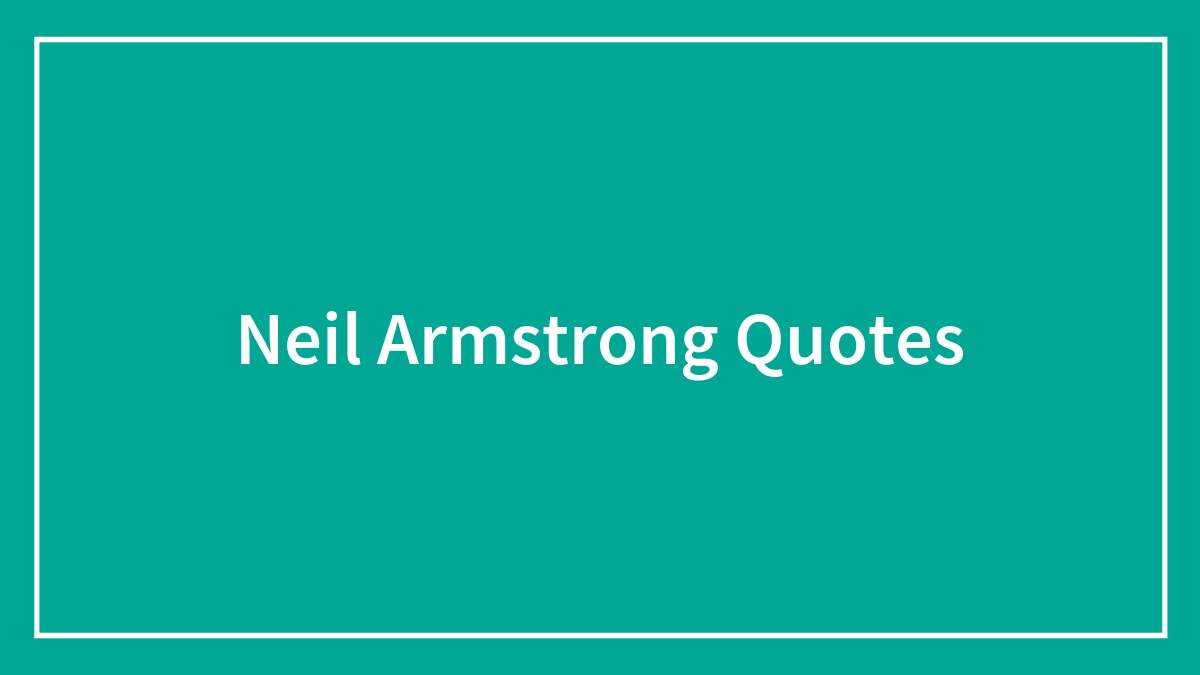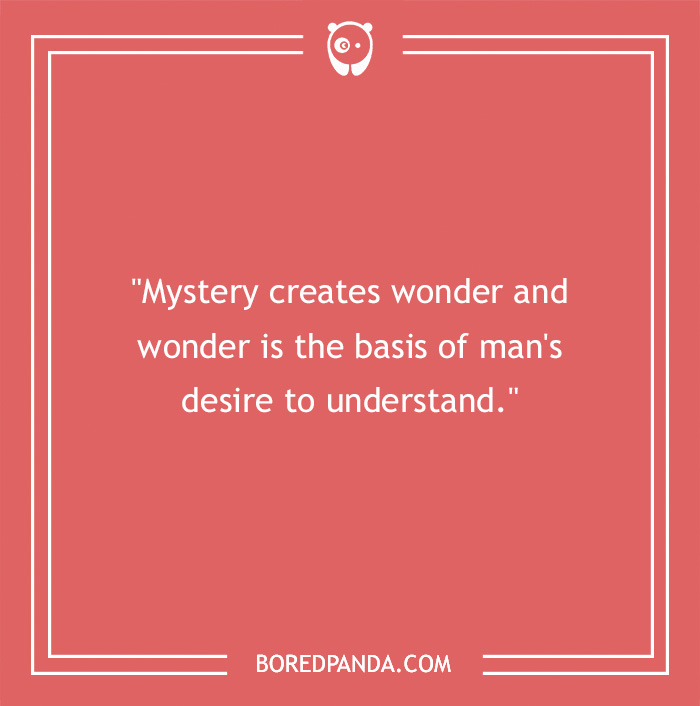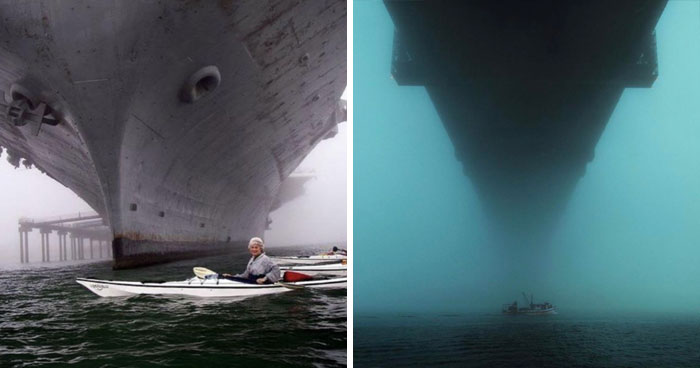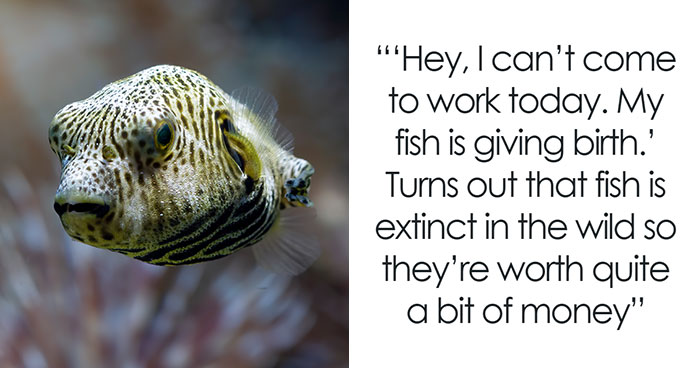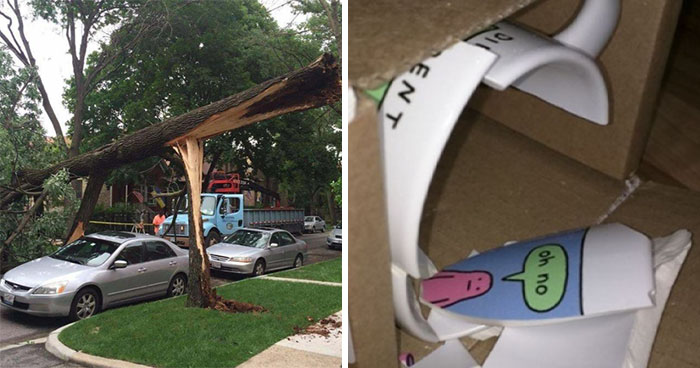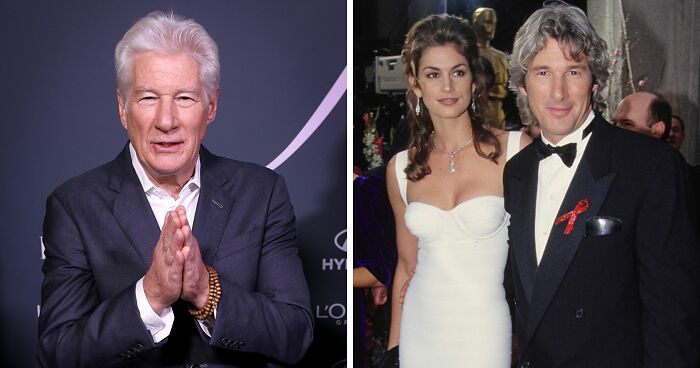Neil Alden Armstrong - the man who, among all the other things, put Wapakoneta, Ohio, on the map. The man who was on the team that won the spine-tingling Space Race in the times of the Cold War. A man who has seen the North Pole both from space and from the ground. Not to mention that Neil Alden Armstrong was the first man to walk on the moon with his journey, and his steps were followed by millions of people worldwide. And it wasn't just his steps that got humankind's full attention; it was also his words. Some of his legendary quotes have made it into history the very same minute they were said; others might be lesser-known but not any less inspiring. So, here's our list full of Neil Armstrong quotes from his years as an astronaut, naval aviator, test pilot, and university professor.
Of course, Neil Armstrong wasn't famous just for his space quotes, however beautiful they are. As you're about to see, he was a man with a profound love for life, and that very well translates into his powerful quotes. He was also a real visionary in his time, and if his moving quotes about the future won't stir something in you, we're not sure if anything will! Yet, of course, you'll be the judge of that, but only after reading all of these famous quotes that made it straight into history pages.
Now, scroll on down below and check out our selection of the most inspiring Neil Armstrong quotes - they are just a bit further down. Don't forget to vote for the best quote after you've finished reading them and share this article with your friends.
This post may include affiliate links.
 "I believe every human has a finite number of heartbeats. I don't intend to waste any of mine."
"I believe every human has a finite number of heartbeats. I don't intend to waste any of mine."
"It suddenly struck me that that tiny pea, pretty and blue, was the Earth. I put up my thumb and shut one eye, and my thumb blotted out the planet Earth. I didn't feel like a giant. I felt very, very small."
"It's a brilliant surface in that sunlight. The horizon seems quite close to you because the curvature is so much more pronounced than here on earth. It's an interesting place to be. I recommend it."
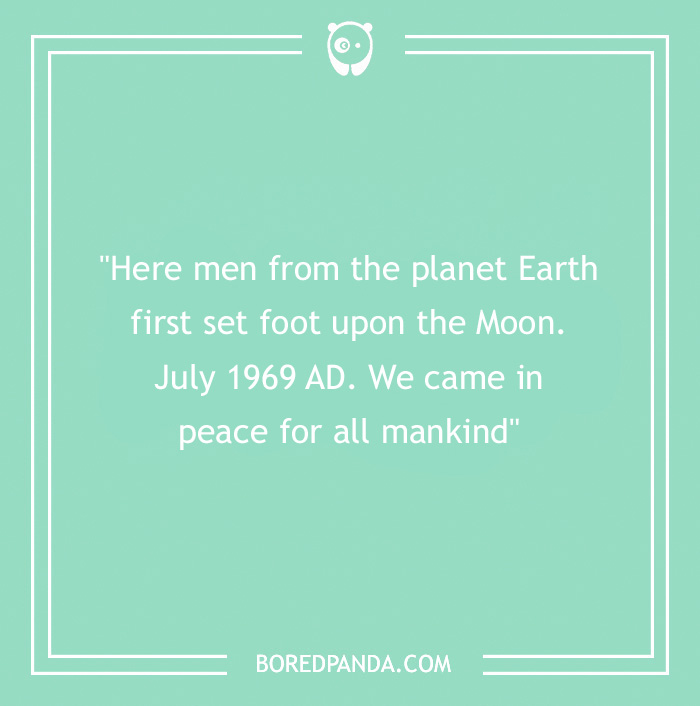 "Here men from the planet Earth first set foot upon the Moon. July 1969 AD. We came in peace for all mankind."
"Here men from the planet Earth first set foot upon the Moon. July 1969 AD. We came in peace for all mankind."
"I can honestly say - and it's a big surprise to me - that I have never had a dream about being on the moon."
"I think we're going to the moon because it's in the nature of the human being to face challenges. It's by the nature of his deep inner soul... we're required to do these things just as salmon swim upstream."
"In much of society, research means to investigate something you do not know or understand."
"We had hundreds of thousands of people all dedicated to doing the perfect job, and I think they did about as well as anyone could ever have expected."
"History is a sequence of random events and unpredictable choices, which is why the future is so difficult to foresee."
"The regret on our side is, they used to say years ago, we are reading about you in science class. Now they say, we are reading about you in history class."
"Well, I think we tried very hard not to be overconfident because when you get overconfident, that’s when something snaps up and bites you."
"I think if there was anything I learned from our skipper was that it’s not how you look; it’s how you perform."
"I guess we all like to be recognized not for one piece of fireworks, but for the ledger of our daily work."
"Science has not yet mastered prophecy. We predict too much for the next year and yet far too little for the next 10."
"The important achievement of Apollo was demonstrating that humanity is not forever chained to this planet and our visions go rather further than that and our opportunities are unlimited."
"I fully expected that, by the end of the century, we would have achieved substantially more than we actually did."
 "Well, I think we tried very hard not to be overconfident, because when you get overconfident, that's when something snaps up and bites you."
"Well, I think we tried very hard not to be overconfident, because when you get overconfident, that's when something snaps up and bites you."
"It's different, but it's very pretty out here. I suppose they are going to make a big deal of all this."
"You've got to expect things are going to go wrong. And we always need to prepare ourselves for handling the unexpected."
"Gliders, sail planes, they’re wonderful flying machines. It’s the closest you can come to being a bird."
"No matter when you had been to this spot before, a thousand years ago or a hundred thousand years ago, or if you came back to it a million years from now, you would see some different things each time, but the scene would be generally the same."
"Now and then I miss the excitement about being in the cockpit of an airplane and doing new things."
 "Society’s future will depend on a continuous improvement program for the human character. And what will that future bring? I do not know, but it will be exciting."
"Society’s future will depend on a continuous improvement program for the human character. And what will that future bring? I do not know, but it will be exciting."
"There are people I’ll always love to listen to, and I’m always ending up discovering new songs by them, which is crazy. Like Stevie Wonder."
"We were involved in doing what many thought to be impossible, putting humans on Earth’s moon."
"I thought the attractions of being an astronaut were actually, not so much the Moon, but flying in a completely new medium."
 "I am, and ever will be, a white-socks, pocket-protector, nerdy engineer, born under the second law of thermodynamics, steeped in steam tables, in love with free-body diagrams, transformed by Laplace and propelled by compressible flow."
"I am, and ever will be, a white-socks, pocket-protector, nerdy engineer, born under the second law of thermodynamics, steeped in steam tables, in love with free-body diagrams, transformed by Laplace and propelled by compressible flow."
"How we use the knowledge we gain determines our progress on earth, in space or on the moon. Your library is a storehouse for mind and spirit. Use it well."
"We have no proof, But if we extrapolate, based on the best information we have available to us, we have to come to the conclusion that... other life probably exists out there and perhaps in many places."
"Every flying machine has its own unique characteristics, some good, some not so good. Pilots naturally fly the craft in such a manner as to take advantage of its good characteristics and avoid the areas where it is not so good."
 "The one thing I regret was that my work required an enormous amount of my time, and a lot of travel."
"The one thing I regret was that my work required an enormous amount of my time, and a lot of travel."
"There are great ideas undiscovered, breakthroughs available to those who can remove one of truth’s protective layers. There are places to go beyond belief."
"History will remember the twentieth century for two technological developments: atomic energy and space flight."
"This blowing dust became increasingly thicker. It was very much like landing in a fast moving ground fog."
"It’s a strange, eerie sensation to fly a lunar landing trajectory not difficult, but somewhat complex and unforgiving."
 "The landing approach was, by far, the most difficult and challenging part of the flight. Walking on the lunar surface was very interesting, but it was something we looked on as reasonably safe and predictable. So the feeling of elation accompanied the landing rather than the walking."
"The landing approach was, by far, the most difficult and challenging part of the flight. Walking on the lunar surface was very interesting, but it was something we looked on as reasonably safe and predictable. So the feeling of elation accompanied the landing rather than the walking."
"I flew to the Moon not so much to go there, but as part of developing the system that would allow it to happen."
"To fly in space is to see the reality of Earth, alone. The experience changed my life and my attitude toward life itself. I am one of the lucky ones."
"I was delighted to be in that project... but I don't think about it on a day-to-day basis -- probably only when you guys (in the media) remind me."
 "NASA has been one of the most successful public investments in motivating students to do well and achieve all they can achieve. It's sad that we are turning the programme in a direction where it will reduce the amount of motivation and stimulation it provides to young people."
"NASA has been one of the most successful public investments in motivating students to do well and achieve all they can achieve. It's sad that we are turning the programme in a direction where it will reduce the amount of motivation and stimulation it provides to young people."
"All in all, for someone who was immersed in, fascinated by, and dedicated to flight, I was disappointed by the wrinkle in history that had brought me along one generation late. I had missed all the great times and adventures in flight."
"Yeah, I wasn't chosen to be first. I was just chosen to command that flight. Circumstance put me in that particular role. That wasn't planned by anyone."
 "I hope you become comfortable with the use of logic without being deceived into concluding that logic will inevitably lead you to the correct conclusion."
"I hope you become comfortable with the use of logic without being deceived into concluding that logic will inevitably lead you to the correct conclusion."
"The single observation I would offer for your consideration is that some things are beyond your control. You can lose your health to illness or accident. You can lose your wealth to all manner of unpredictable sources. What are not easily stolen from you without your cooperation are your principles and your values. They are your most important possessions and, if carefully selected and nurtured, will well serve you and your fellow man."
"Houston, that may have seemed like a very long final phase. The autotargeting was taking us right into a... crater, with a large number of big boulders and rocks... and it required... flying manually over the rock field to find a reasonably good area."
"I believe that the message of Apollo XI was that in the spirit of Apollo, a free and open spirit, you can attack a very difficult goal and achieve it, if you can all agree and work together to achieve that goal."
"In flying, the probability of survival is inversely proportional to the angle of arrival."
"As I stepped on the moon, I looked around, dazed… Magnificent. The vast, sandy silver surface was almost illusory."
"I thought, well, when I step off it's just going to be a little step — a step from there down to there — but then I thought about all those 400,000 people who had given me the opportunity to make that step and thought it's going to be a big something for all those folks and, indeed for a lot of others that weren't even involved in the project, so it was kind of a simple correlation."
 "Pilots take no special joy in walking: pilots like flying. Pilots generally take pride in a good landing, not in getting out of the vehicle."
"Pilots take no special joy in walking: pilots like flying. Pilots generally take pride in a good landing, not in getting out of the vehicle."
"It’s a great thing for a man to walk on the moon. But it’s a greater thing for God to walk on the earth."
"America means opportunity. It started that way. The early settlers came to the new world for the opportunity to worship in keeping with their conscience, and to build a future on the strength of their own initiative and hard work… They discovered a new life with freedom to achieve their individual goals."
 "A century hence, 2000 may be viewed as quite a primitive period in human history. It’s something to hope for."
"A century hence, 2000 may be viewed as quite a primitive period in human history. It’s something to hope for."
"Friends and colleagues all of a sudden looked at us, treated us, slightly differently than had months or years before when we were working together. I never quite understood that."
"Our autopilot was taking us into a very large crater, about the size of a big football stadium with steep slopes on the crater covered with very large rocks about the size of automobiles that was not the kind of place that I wanted to try to make the first landing."
"It would be impossible to overstate the appreciation that we on the crew feel for your dedication and the quality of your work."
 "I’ll not assert that it was a diversion which prevented a war, but nevertheless, it was a diversion."
"I’ll not assert that it was a diversion which prevented a war, but nevertheless, it was a diversion."
"The method we used to descend from orbit to the surface of an alien world worked, but it would have been far more efficient and far less traumatic if we could just beam down."
"I'm substantially concerned about the policy directions of the space agency. We have a situation in the U.S. where the White House and Congress are at odds over what the future direction should be. They're sort of playing a game and NASA is the shuttlecock that they're hitting back and forth."
 "The single observation I would offer for your consideration is that some things are beyond your control. You can lose your health to illness or accident. You can lose your wealth to all manner of unpredictable sources. What are not easily stolen from you without your cooperation are your principles and your values. They are your most important possessions and, if carefully selected and nurtured, will well serve you and your fellow man."
"The single observation I would offer for your consideration is that some things are beyond your control. You can lose your health to illness or accident. You can lose your wealth to all manner of unpredictable sources. What are not easily stolen from you without your cooperation are your principles and your values. They are your most important possessions and, if carefully selected and nurtured, will well serve you and your fellow man."
"We would like to give special thanks to all those Americans who built the spacecraft; who did the construction, design, the tests, and put their hearts and all their abilities into those craft. To those people tonight, we give a special thank you, and to all the other people that are listening and watching tonight, God bless you. Good night from Apollo 11."
"Through books you will meet poets and novelists whose creations will fire your imagination. You will meet the great thinkers who will share with you their philosophies, their concepts of the world, of humanity and of creation. You will learn about events that have shaped our history, of deeds both noble and ignoble. All of this knowledge is yours for the taking… Your library is a storehouse for mind and spirit. Use it well."
"Science fiction writers thought it would be possible. H. G. Wells, Jules Verne, and other authors found ways to get people to the moon. But none of those writers foresaw any possibility of the lunar explorers being able to communicate with Earth, transmit data, position information, or transmit moving pictures of what they saw back to Earth. The authors foresaw my part of the adventure, but your part was beyond their comprehension."
 "Engineers are dedicated to solving problems and creating new, useful, and efficient things. So should not the world admire and respect them? Answer: Only occasionally."
"Engineers are dedicated to solving problems and creating new, useful, and efficient things. So should not the world admire and respect them? Answer: Only occasionally."
"Knowledge is fundamental to all human achievement and progress. It is both the key and the quest that advances mankind. The search for knowledge is what brought men to the moon; but it took knowledge already acquired to make it possible to get there."
"All the Apollo people were working hard, working long hours, and were dedicated to making certain everything they did, they were doing to the very best of their ability."
"Later Apollo flights were able to do more and move further in order to cover larger areas, particularly when the Lunar Rover vehicle became available in 1971."
"There was great uncertainty about how well we would be able to walk in our cumbersome pressurized suit."
 "Tomorrow, we the crew of Apollo 11 are privileged to represent the United States in our first attempt to take man to another heavenly body."
"Tomorrow, we the crew of Apollo 11 are privileged to represent the United States in our first attempt to take man to another heavenly body."
"I was the strange creature that kidnapped Bock from his homeland and brought him to this strange new and still changing planet. I can't help feeling that I owe him an apology or at least an explanation."
"We would have loved the opportunity to take some time to enjoy it, but we had the inevitable checklist and experiments that had to go on. So it was back to business, back to work as soon as we congratulated each other."
"As a boy, because I was born and raised in Ohio, about 60 miles north of Dayton, the legends of the Wrights have been in my memories as long as I can remember."
 "The single thing which makes any man happiest is the realization that he has worked up to the limits of his ability, his capacity. It’s all the better, of course, if this work has made a contribution to knowledge, or toward moving the human race a little farther forward."
"The single thing which makes any man happiest is the realization that he has worked up to the limits of his ability, his capacity. It’s all the better, of course, if this work has made a contribution to knowledge, or toward moving the human race a little farther forward."
"The exciting part for me, as a pilot, was the landing on the moon. That was the time that we had achieved the national goal of putting Americans on the moon. The landing approach was, by far, the most difficult and challenging part of the flight. Walking on the lunar surface was very interesting, but it was something we looked on as reasonably safe and predictable. So the feeling of elation accompanied the landing rather than the walking."
"Oh, I am quite certain that we will have such bases in our lifetime, somewhat like the Antarctic stations and similar scientific outposts — continually manned. Although, certainly there is the problem of the environment, the vacuum, the high and low temperatures of day and night. Still, in all, in many ways, it's more hospitable than Antarctica might be."
"There was a peculiar sensation of the duality of time — the swift rush of events that characterizes all our lives — and the ponderous parade which marks the aging of the universe. Both kinds of time were evident — the first, by the routine events of the flight, whose planning and execution were detailed to fractions of a second — the latter by rocks around us, unchanged throughout the history of man — whose 3-billion-year-old secrets made them the treasure we sought."
"The twentieth century was often punctuated with the terror of war and darkened with societal struggles to overcome injustice. But it was also the first century in which technology enabled the tenets and the images of those traumas to reach across the world and touch people in ways that were previously unimagined."
 "For The United States, the leading space faring nation for nearly half a century, to be without carriage to low Earth orbit and with no human exploration capability to go beyond Earth orbit for an indeterminate time into the future, destines our nation to become one of second or even third rate stature. While the President’s plan envisages humans traveling away from Earth and perhaps toward Mars at some time in the future, the lack of developed rockets and spacecraft will assure that ability will not be available for many years. Without the skill and experience that actual spacecraft operation provides, the USA is far too likely to be on a long downhill slide to mediocrity. America must decide if it wishes to remain a leader in space. If it does, we should institute a program which will give us the very best chance of achieving that goal."
"For The United States, the leading space faring nation for nearly half a century, to be without carriage to low Earth orbit and with no human exploration capability to go beyond Earth orbit for an indeterminate time into the future, destines our nation to become one of second or even third rate stature. While the President’s plan envisages humans traveling away from Earth and perhaps toward Mars at some time in the future, the lack of developed rockets and spacecraft will assure that ability will not be available for many years. Without the skill and experience that actual spacecraft operation provides, the USA is far too likely to be on a long downhill slide to mediocrity. America must decide if it wishes to remain a leader in space. If it does, we should institute a program which will give us the very best chance of achieving that goal."
"Space has not changed but technology has, in many cases, improved dramatically. A good example is digital technology where today's cell phones are far more powerful than the computers on the Apollo Command Module and Lunar Module that we used to navigate to the moon and operate all the spacecraft control systems."
"During my testimony in May I said, “Some question why Americans should return to the Moon. “After all,” they say “we have already been there.” I find that mystifying. It would be as if 16th century monarchs proclaimed that “we need not go to the New World, we have already been there.” Or as if President Thomas Jefferson announced in 1803 that Americans “need not go west of the Mississippi, the Lewis and Clark Expedition has already been there.” Americans have visited and examined 6 locations on Luna, varying in size from a suburban lot to a small township. That leaves more than 14 million square miles yet to explore."
"It is true that we were cautious in our planning. We were operating in a near perfect vacuum with the temperature well above 200 degrees Fahrenheit with the local gravity only one sixth that of Earth. For example, because normal air conditioning is inadequate for lunar conditions, we were required to use cold water to cool the interior of our suits. We did not have any data to tell us how long the small water tank in our backpacks would suffice. NASA officials limited our surface working time to 2 and 3/4 hours on that first surface exploration to assure that we would not expire of hyperthermia."
"Preflight planners wanted us to stay in TV range so that they could learn from our results how they could best plan for future missions. I candidly admit that I knowingly and deliberately left the planned working area out of TV coverage to examine and photograph the interior crater walls for possible bedrock exposure or other useful information."
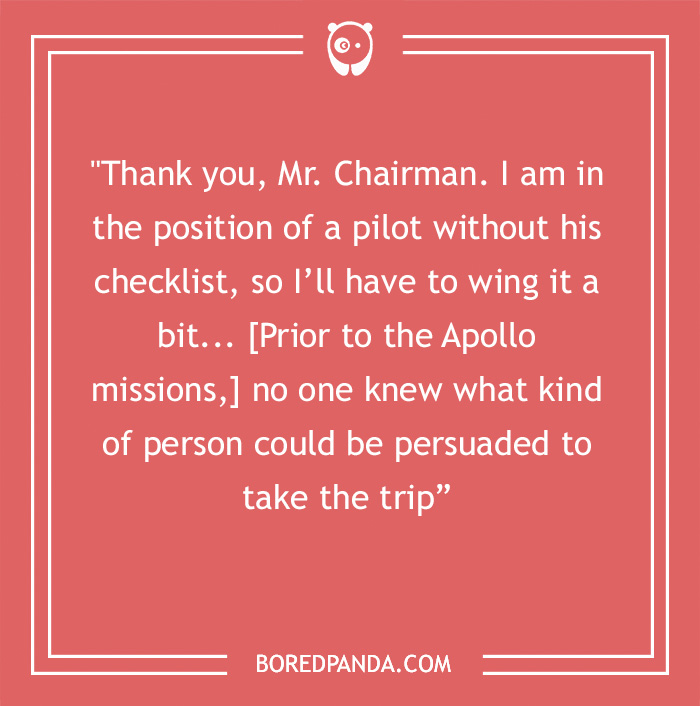 "Thank you, Mr. Chairman. I am in the position of a pilot without his checklist, so I’ll have to wing it a bit... [Prior to the Apollo missions,] no one knew what kind of person could be persuaded to take the trip. Prisoners were suggested. Soldiers could be ordered. Photographers could take pictures — and they’re expendable. Doctors understood the limits of human physiology. Finally, both sides picked pilots."
"Thank you, Mr. Chairman. I am in the position of a pilot without his checklist, so I’ll have to wing it a bit... [Prior to the Apollo missions,] no one knew what kind of person could be persuaded to take the trip. Prisoners were suggested. Soldiers could be ordered. Photographers could take pictures — and they’re expendable. Doctors understood the limits of human physiology. Finally, both sides picked pilots."
"We have learned how to navigate to the moon. That is like the ancient Chinese mainlanders learning how to get to Formosa; Formosa is the moon. After we settle it, we jump off from there to Mars, just like they went next to the Philippines. And from there across our vast galaxy. If the Austronesians can sail in there boats and scatter into settlements across Oceania, we can take our spacecraft and scatter and settle across the Milky Way. It may take even longer than it took the Austronesians, but if they did it, so can we, because they are us."

 Dark Mode
Dark Mode 

 No fees, cancel anytime
No fees, cancel anytime 






